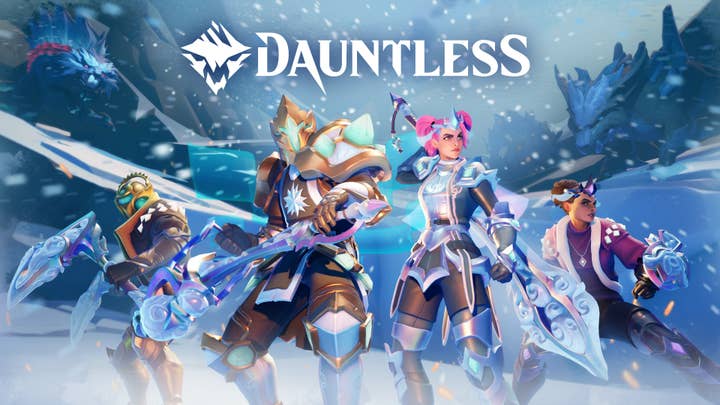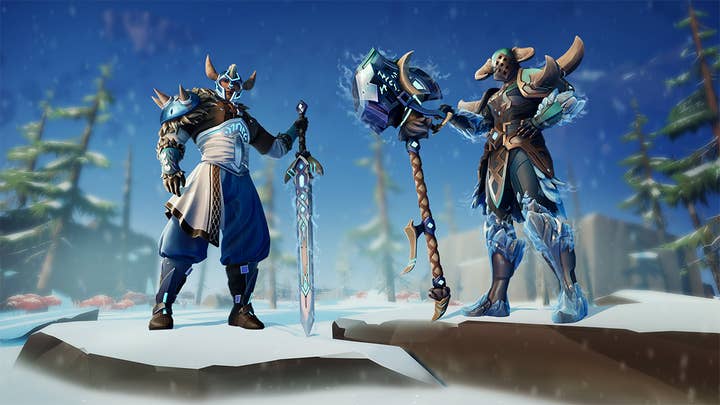The keys to multilingual game development
Xloc's Jenny McKearney outlines best practices so that projects remain on schedule when localizing games using remote teams
When the majority of video games companies around the world closed their office doors in early 2020 due to COVID-19, not many could have foreseen that the trend towards remote working would become part of everyday life.
This was especially true for localization professionals, as publishers and developers got to grips with staff adjusting to different schedules and practices across multiple languages and regions.
All of this while keeping track of assets amid thousands of strings, aggressive timelines and complicated conversation structures.
With this in mind, we've outlined three best practices that can help you retain clear communication so that projects remain on schedule when localizing games using remote teams.
The end goal? To ensure that games remain open to everyone, bringing players from all over the world together, even with some developers restricted to working from home.
1. Incorporate localization into production
First, you want to make sure that localization is introduced into the production process as early as possible, not just tacked on to the final stages. It's important to find a way of integrating the localization process into the main language development but without negatively impacting hard-working development teams.
The end goal? To ensure that games remain open to everyone, bringing players from all over the world together
To help achieve this, localization teams should build strong bonds with the writing teams and designers and know when a module/level/character is "ready" for translation.
There are a number of reasons why this is important.
For accurate and efficient localization, it's key that the teams working on the translations have a clear knowledge, familiarity and understanding of the type of source files, what information is contained in the files, whether each string has its own unique ID, if the translated file will be multilingual or separate files per language and how will male/female variant lines be handled.
Another issue we see on a consistent basis is that a large percentage of localization bugs are graphical user interface (GUI) related. Overruns, overlapping and cut-offs are bothersome and difficult to fix the closer to final you get.

By performing localization QA (LQA) on the GUI early on in the process, you can see where your potential issues lie and get them fixed before they become bugs that could delay the project or market launch.
Also, if you don't have a tracking system you will lose your mind comparing to ensure the latest source strings have been sent/resent to translation. You need to know exactly what state each and every string is at and to ensure all translated strings match the latest source.
This becomes more critical when voice-over scripts are being made and when you are in LQA mode.
These are just some of the many items that, if close collaboration and communication is embedded early in the development cycle, can result in effective localization.
To achieve Simship -- the concurrent distribution of a game to all target markets in the appropriate languages -- localization can't wait until the source material is done. You must localize alongside development and, to win at this, localisation teams cannot work in their own vacuum -- they need to be part of the overall project.
2. Maintain a central repository
Finding communication tools that work best across all aspects of development became a priority during lockdowns across the world in 2020.
Even when working from home, we remain global team members working on the same product, pulling together to make a game the best it could be for international markets. We need to stay connected -- delivering art, scripts, audio and beyond at the highest possible standard.
Having a central repository for all languages makes it easier to continue daily operations on a project.
Think about it: development is not static and sequential.
Anyone who works in a development studio will understand that the creative process is fluid and ever-changing, with many tweaks applied to strings before they are considered final, whatever final really is.
Writers write, they love tinkering and updating and perfecting. It's what they do.
Therefore, it's our job as localization professionals to pull those strings out of their hands when they are "almost final", ready for their first round of translation and hopefully won't get blown up.

Working together with Glu Mobile, we helped organize multilingual assets for titles such as Deer Hunter 18, TSB 2020 and Diner Dash Adventures.
Being a mobile game company, Glu can have localization work on multiple titles happening at the same time. That's why a function enabling all the valued players in the localization process -- producers, developers, translators, QA and even executives -- to access communication and share and update data is imperative.
Kassi O'Connor, outside services director at Glu, says that using a central repository "keeps localization organised and easily accessible by translators. Updates are easy without having a mass amount of emails. Plus, it's much easier to upload text files to a build."
That's why the ability to generate all this information in one place, and spit out a detailed report, can save developers a ton of time (and headaches!).
Otherwise you end up sending google sheets or XLSX files between dev, publishers, vendor companies, translators and LQA. It can become a big muddle in a hurry.
Whether you choose to create a proprietary technology, or use third-party software, a well-organised central repository and all-in-one communication tool can eliminate some of the most prominent pain points of game localization.
3. Always validate your work
While we're on the subject of muddles, let's talk about the most dreaded part of localization: post-launch errors. You can find entire Reddit threads dedicated to translation mistakes -- and no developer wants to be caught off guard.
Error checking is vital in any CMS system, such as Xloc -- otherwise loc strings will break the builds that developers have worked so hard on. So, if you want success in the aggressive timelines that Loc teams always find themselves facing, you have to check your work at every turn.
You can find entire Reddit threads dedicated to translation mistakes -- and no developer wants to be caught off guard
Localisation should be the calm elegant duck graciously floating on top of the water, whilst frantically wading underneath trying to stay afloat.
When uploading localization files, you want a system that tracks every update and catches errors. With a central repository set up, and an easy-to-understand UI, this is a lot simpler than it sounds. Translating files in an organised way, with a lot of oversight, makes it much faster to triple-check assets for any possible errors.
A seamless interface with your software is also one of the most powerful features when it comes to successfully catching errors.
Another thing to consider is that if you import broken source strings into your CMS or send them out to translation, you will get broken strings back.
You will build broken strings into translated files and load these broken strings into the source control tool which can break the build.
Last, but not least, when it comes to translation errors, you'll want validation checks and regular reports at every step of the localization process.
Error reports are a great feature, because they let you fix an issue before it can break a build. In short, make sure any communication tools you're looking to on-board have thorough reporting capabilities so you can ensure player confidence.
Conclusion: Communication is key
What all three of the above points boil down to is clear communication and oversight.
While everyone has a process that works for them when working from home, instantaneous feedback and course correction is vital. You'd naturally get this feedback in the office discussing your work with someone, but in the digital age we need to be a little more creative.
Important discussions are happening in multiple languages, across multiple variations on an asset.
In the age of global game development, when localization is a must, be sure to explore all the communication tools that might best work for you to streamline the process.
With over 20 years experience in localization and gaming for the IT/software industry, Jenny McKearney is a technical project manager and business developer for Xloc, working with and supporting clients including Epic, 2K, Bethesda, Bandai Namco, Phoenix Labs, Glu Mobile and more.
